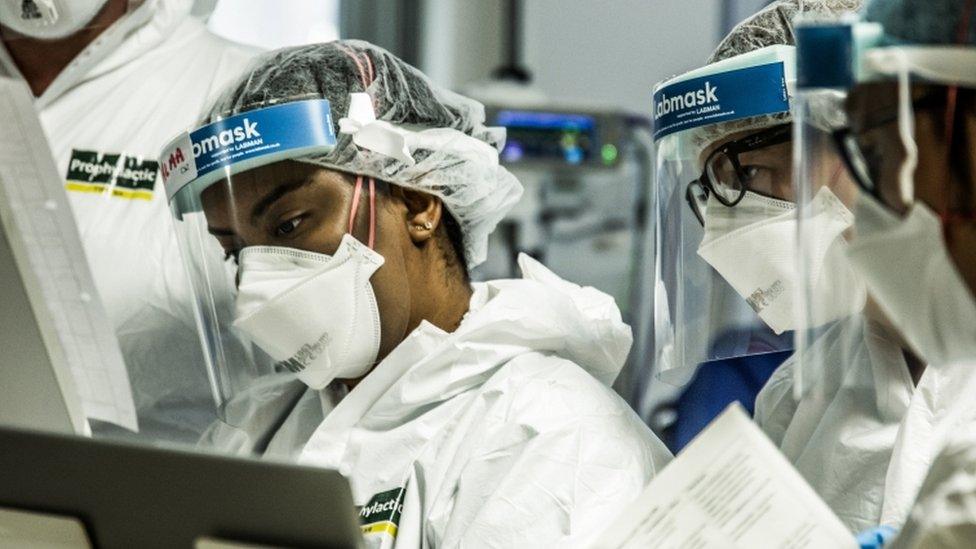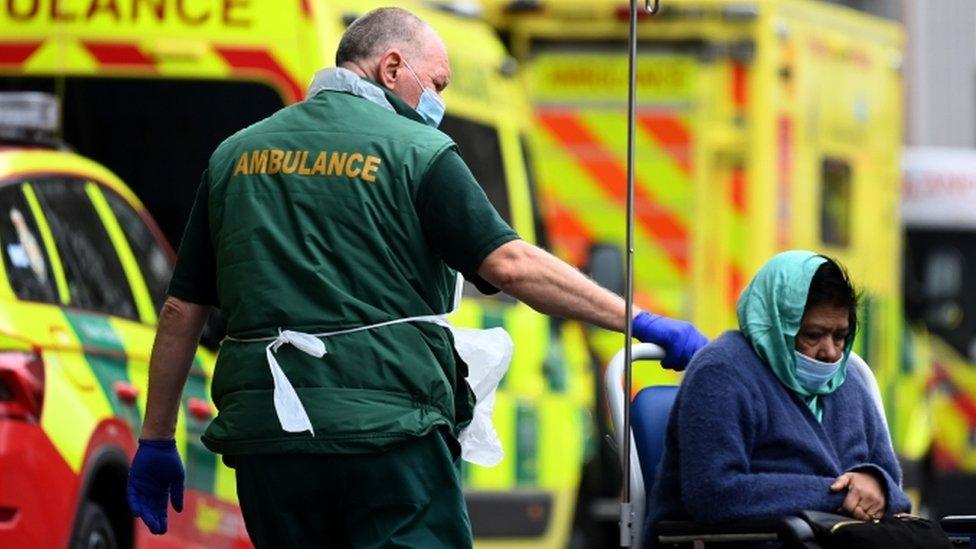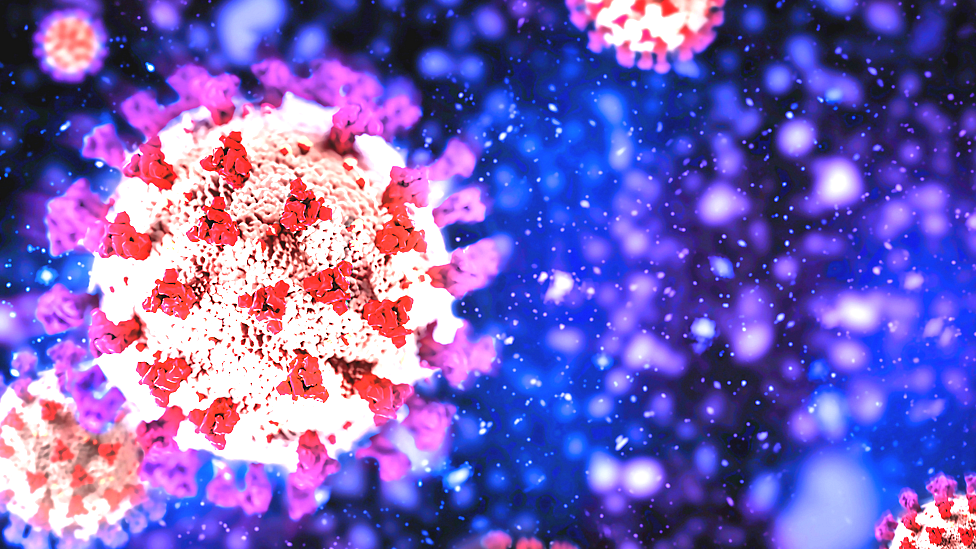Covid: Teesside NHS services face 'difficult January'
- Published

Bosses at Middlesbrough's James Cook University Hospital say there is a "great strain" on services
Health officials on Teesside say they are facing "a difficult January" as they deal with huge increases in coronavirus cases and staff absences.
Middlesbrough now has the highest rate of Covid infections in England, with Stockton, Redcar and Hartlepool also in the top eight.
Extra wards have had to be opened at hospitals to cope with up to four times as many admissions since Christmas.
Bosses say there is a "great strain" on services amid rising staff absences.
Latest government data shows Middlesbrough recorded 2,935 cases per 100,000 people in the week up to 6 January, up from 2,058 the previous week and 604 the week before that.
The rocketing infection rates prompted the town's mayor to issue a plea on Friday for those yet to have a vaccine to get jabbed.
David Reaich, deputy chief medical officer for South Tees Hospitals NHS Foundation Trust, said the "very significant rise " in hospital admissions was likely to continue in the coming days and weeks.
'Continue to rise'
"We have three times as many patients in hospital as we did just before Christmas, and that puts a great deal of strain across the system," he told BBC Radio Tees.
"The number is going to continue to rise; we don't know when it will plateau. We are certainly seeing higher admissions on a day-to-day basis than for quite some time.
"The likelihood is it will continue because community cases are rising.
"I think we are going to have a difficult January. Let's see how things go over the next two to three weeks. Then we will hopefully begin to see some light."
Dr Deepak Dwarakanath, the medical director for North Tees and Hartlepool NHS Foundation Trust, said before Christmas the trust had reduced the number of in-patients with Covid to 23 but as of Sunday, that number was "well into the 90s".

Dr Dwarakanath said some people arriving in ambulances had to wait more than 30 minutes to be admitted
"We have seen a four-fold increase in the number of patients in the building, and that has had a huge impact," he told BBC Radio Tees.
"Staff sickness is one of the biggest issues for us -doctors, nurses, domestics, IT specialists, the whole gamut of employees essential for keeping hospitals running efficiently."
Dr Dwarakanath said about 8% of staff - just more than 400 people - were off sick due to Covid, but in combination with other absences, the overall figure was currently 13-14%, about 700 staff in all.
'A 24/7 headache'
Officials are holding twice-daily meetings about staffing, he said, "looking at who's phoning in with Covid and how we need to move other staff around with the appropriate skills".
"It is literally a 24/7 headache to try to sort it out. It is a real big pressure," he added.
Some people arriving in ambulances have had to wait more than 30 minutes to be admitted, such has been the "sheer volume of patients" coming in, Dr Dwarakanath said.
With several nursing homes in the area experiencing Covid outbreaks, the "flow out of the hospital isn't as good as normal", he explained.
"We are literally at the stage of managing a few patients out of the building to get the next few into the building. It is that tight," he added.
Although the postponement of routine and planned operations has been kept to the "barest minimum", some procedures have had to be cancelled in order to bolster staffing levels on other wards, Dr Dwarakanath said.
"We wrote to our patients pre-Christmas warning them this would be a risk going into the new year," he added.
"It will be an issue probably for the rest of January. Hopefully by the time we get into February, the pressures will reduce."

Follow BBC North East & Cumbria on Twitter, external, Facebook, external and Instagram, external. Send your story ideas to northeastandcumbria@bbc.co.uk, external.
- Published20 December 2021
- Published1 July 2022

- Published4 March 2022

- Published8 December 2021